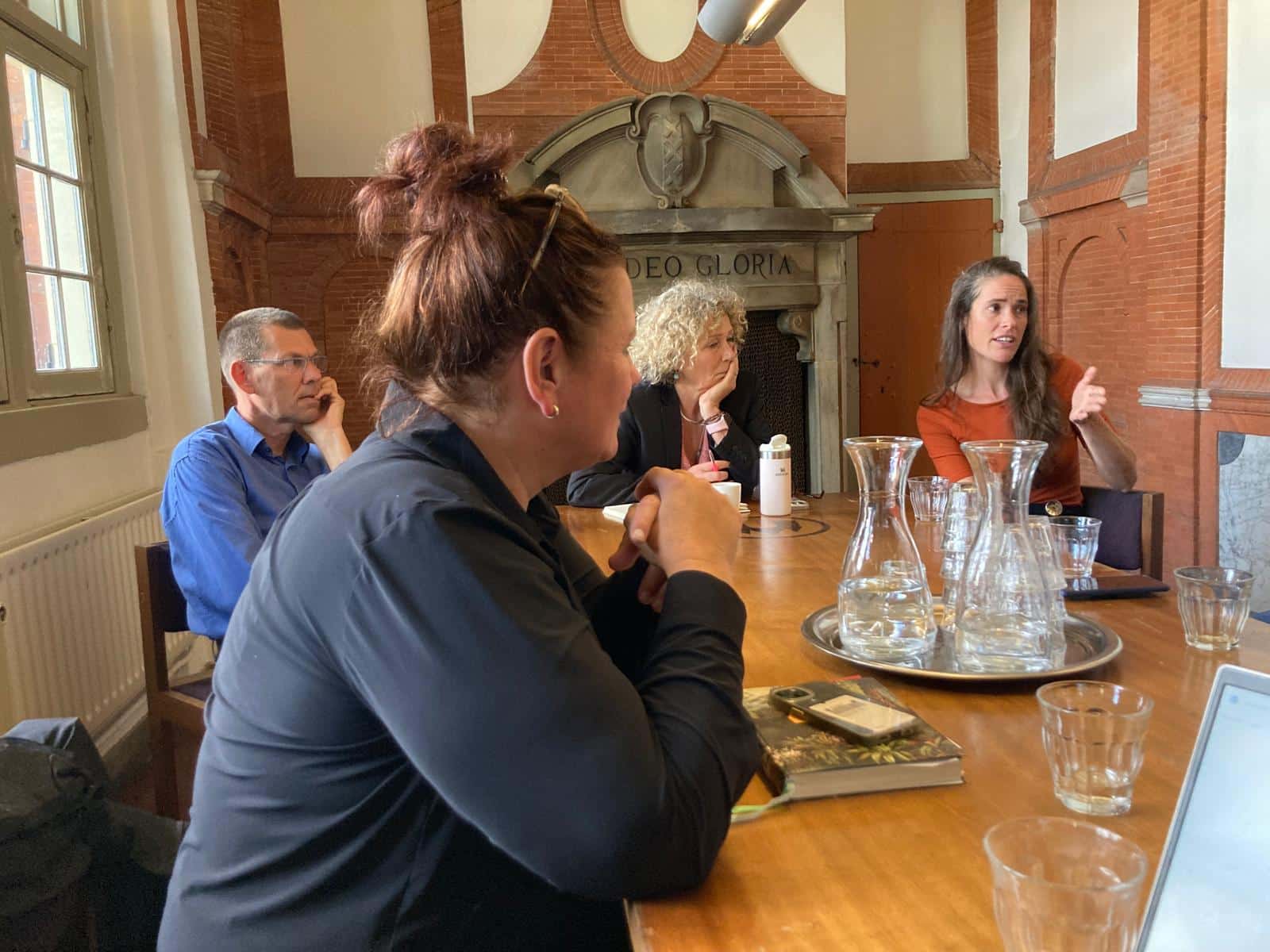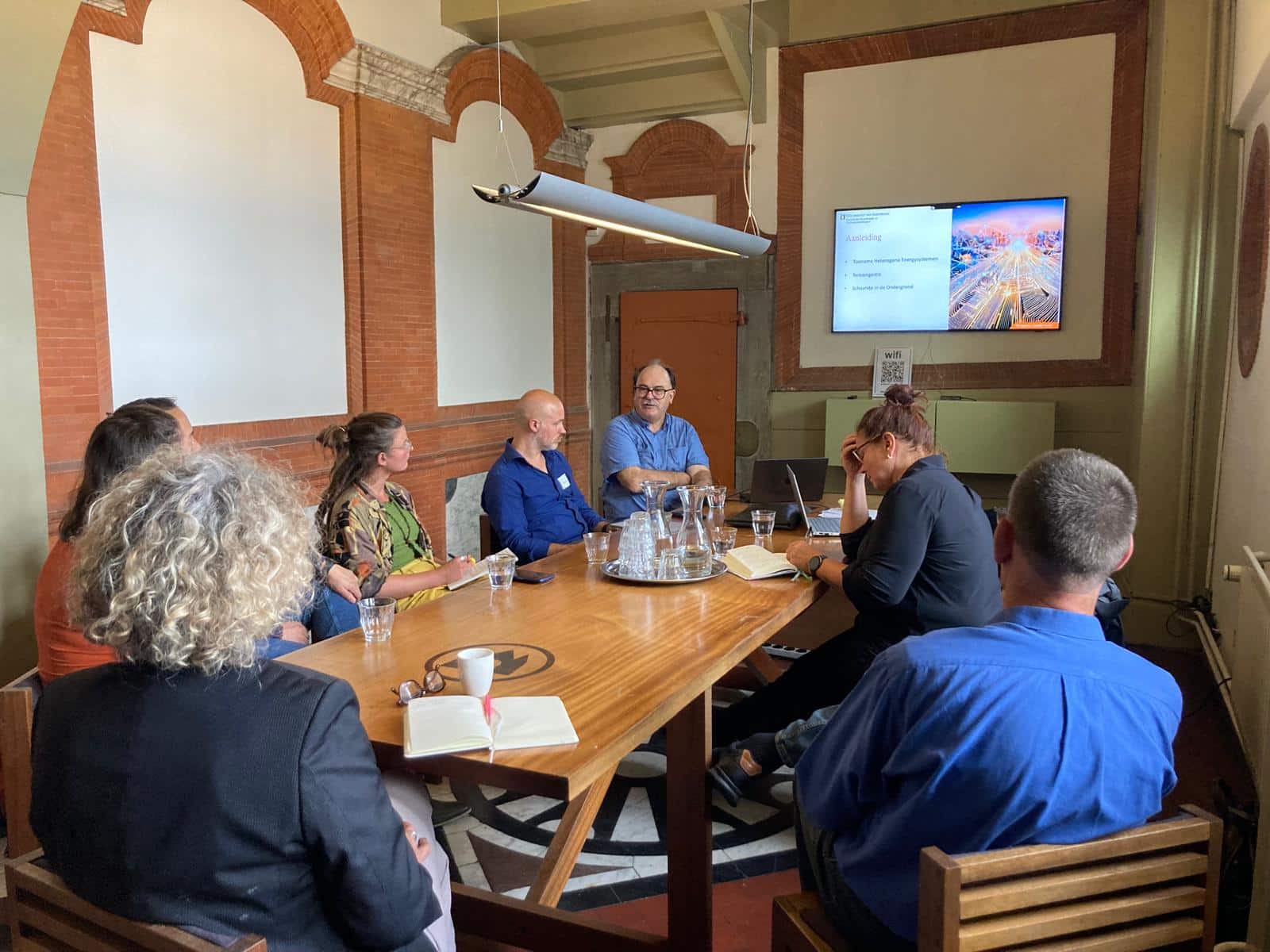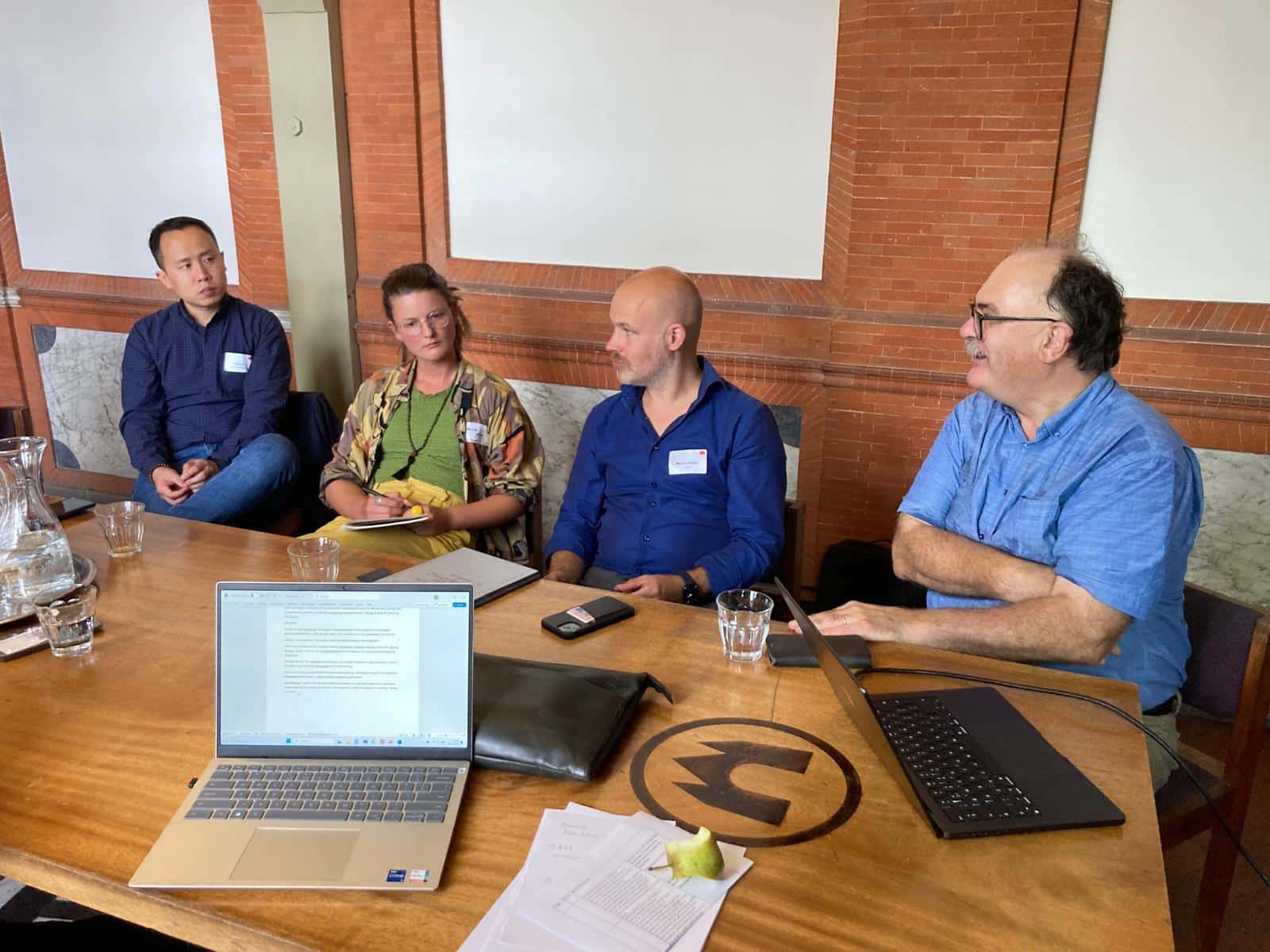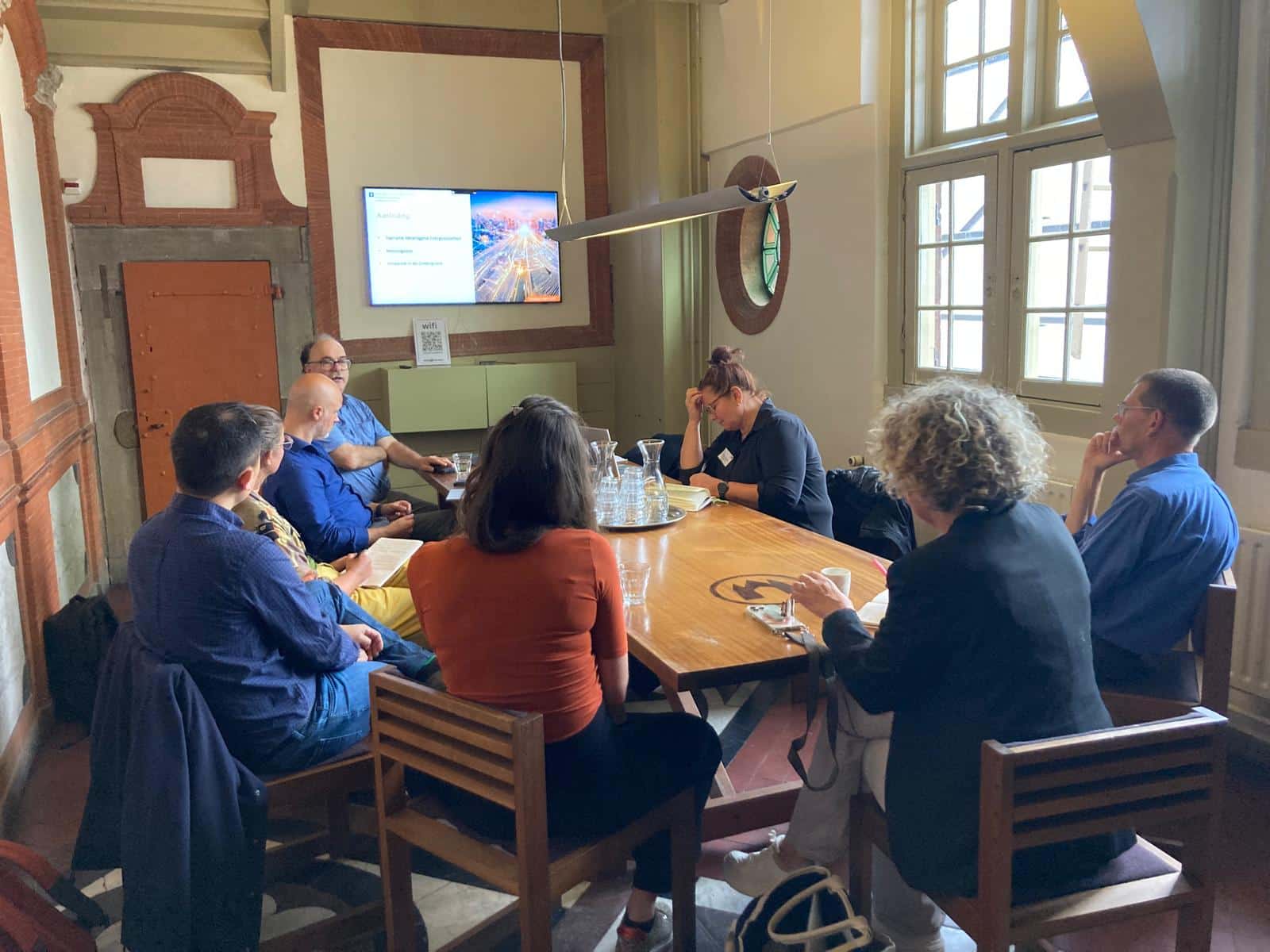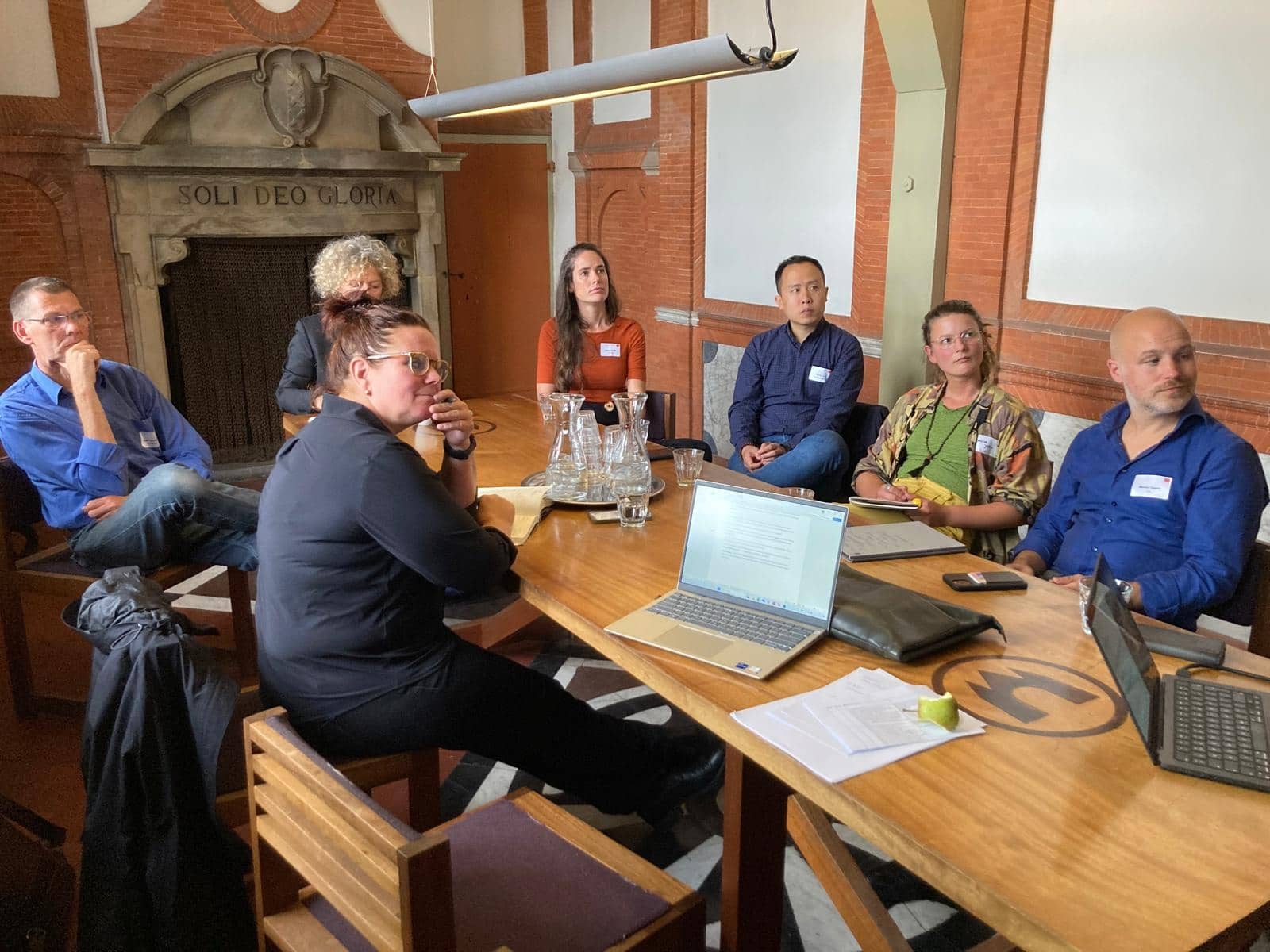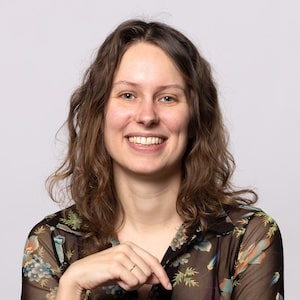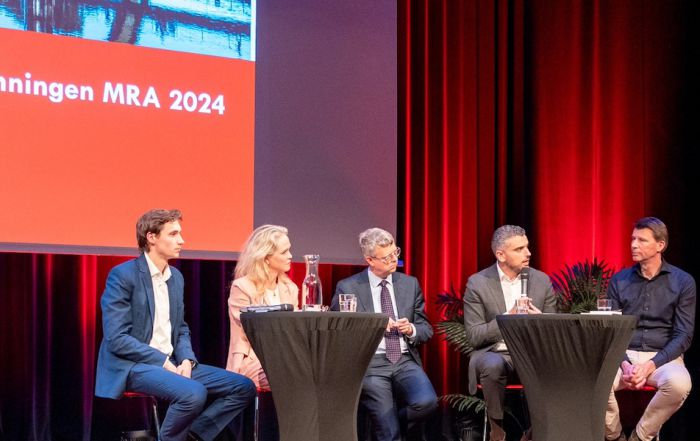Energy communities: the solution to congestion?
The congested power grid is a complex problem. Energy sharing and establishing energy communities is increasingly seen as a solution to combat grid congestion. That's why the Grid Congestion Learn & Share event series delved into the world of energy communities.
“By 2050, at least 50 percent of energy for the built environment and private transportation will be generated from a social initiative.” What will it take to achieve that moonshot? Judith Veenkamp of Waag FutureLab discussed the results of her research with the Social Initiative Energy Transition programme (Dutch).
New territory
Judith talked about the importance of civil-public-private partnerships. Public-private is familiar territory, but civil-public and civil-private are often still complicated. These collaborations require a common infrastructure, and a foundation of shared values. This takes time, and is complex, but provides the necessary long-term solutions. Energy communities can contribute to sustainability, social value creation, innovation for decentralised energy systems, strategic autonomy and resilience.
Text continues below these photos.
How to organise an energy community?
The energy cooperative on Sporenburg Amsterdam is a great example of an energy community where residents share energy with each other. Founder Jasper Klapwijk mentioned in his breakout session what is involved in setting this up.
“A lot is already possible, but the system is not quite set up for this kind of civic initiative,” Jasper explained. “You can only share energy with your neighbourhood if everyone uses the same energy supplier, who can act as a guarantor. So no more freedom of choice in energy suppliers.”
Main reasons for residents to share energy with each other:
- Saving on energy bills
- Income through energy generation
An energy community currently offers little financial benefit. But if residents could deduct their generated energy from their consumption (offsetting) and energy communities would receive tax rebates, participation would become a lot more interesting!
On Sporenburg not all roofs are full of solar panels yet, so there is no congestion right now. But if the full potential of rooftops is utilised, that could cause problems. So it is essential that locally generated energy can be used locally again. This is certainly possible by sharing energy and if residents adjust their behavior. So let’s use energy when the sun shines!
Bypassing grid congestion at the port
In the port of Amsterdam, congestion is a major problem. The area is at the maximum capacity for its power demand. As a result, new companies cannot get a connection and companies that want to grow cannot get a larger connection. One solution to this is energy hubs, in which companies coordinate their energy demand and supply and make use of locally stored energy.
Gem Beemsterboer of the Port of Amsterdam explained how he set up an energy hub for 30 companies. In this pilot with Liander, companies at the port have a group contract. With this, Liander gives capacity – under restrictive conditions – to companies in the queue for a connection. Members of the cooperative adapt their use of electricity where possible and install power meters, in order to optimally control power use. In this way, the companies collectively stay below their contractual capacity, whereas they would go over it on their own. So there is a lot to be gained for businesses by using energy hubs.
Energy from synergy
In this break-out session by Prof. Dr. John Grin and Dr. Mendel Giezen (University of Amsterdam), we discussed what new definition of efficiency is needed in an area-based energy transition.
We came to the conclusion that we need to start looking at the scarce available space in a different way: from user value to experience value and future value. This means working in an area-oriented way. Efficiency is replaced by effectiveness, and each place requires ‘justice’ that fits the identity and values of its users. How to distribute costs and benefits (distributive justice)? How to consider all stakeholders (procedural justice) and to you recognise existing and future problems (recognition justice)?
Grid Congestion Learn & Share: Labour Market
There are many ways we can alleviate the tension on the grid. It remains important to connect with each other in order to work on all possible solutions as quickly as possible.
The next edition of Grid Congestion Learn & Share, on Nov. 5, is therefore about the labour market. Because reinforcing the grid, with thicker power lines, requires a lot of people.
We are organising the Grid Congestion Learn & Share event series in cooperation with Caroline van der Kooi of the Centre of Expertise City Net Zero and Judith Veenkamp of Waag Futurelab.
27 September 2024
Read more about
Contact us
Want to keep up to date?
Get the best regional news and events (in Dutch) via the Board Update newsletter
Share this news
Want to keep informed?
Follow us daily on LinkedIn and sign up for the Board Update newsletter.
Read more
- On 14 and 15 October, board members of the Amsterdam Economic Board convened for ...
- Focusing more on women in health care innovation and research will have ...
- What is the Amsterdam Metropolitan Area’s position on critical raw materials? ...

